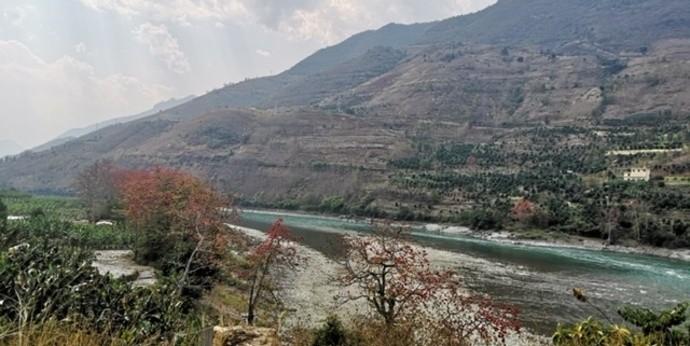
Editor's note: The 11th National Congress of the China Federation of Literary and Art Circles and the 10th National Congress of the China Writers Association were held in Beijing from December 14 to 17, and the representatives of the vast number of literary and art workers focused on the in-depth implementation of the important spirit of General Secretary Xi Jinping's series of expositions on literary and artistic work, and discussed a new chapter in the prosperity of socialist cultural undertakings in the new era. More than 100 representatives of writers and artists from Shanghai attended the grand event, and we invited Fu Yuehui, the youngest representative of the Shanghai writers delegation, to record what he saw, heard and thought about his first meeting in Beijing.
Last night, I watched the shortlisted manuscripts of the 8th National College Students' "Wild Grass Literature Award" of Zhaotong College, and I didn't finish reading it until more than three o'clock in the morning. Zhaotong is a bitter cold place, not to mention compared with the whole country, that is, in the sixteen prefectures of Yunnan, Zhaotong can also be regarded as a place where life is more difficult. However, it is such a place that has produced many excellent poets and novelists. In the process of discovering and promoting writers to go global, Zhaotong College has played an irreplaceable role.
When I woke up in the morning, I woke up sleepily and took a group bus to the Beijing Hotel Conference Center, and this morning's meeting had two agendas: one was to listen to Secretary Zhang Hongsen's "Report on the Ninth Plenary Committee of the Chinese Writers Association," and the other was to listen to Teacher Qiu Huadong's "Explanation on Amending the Statutes of the Chinese Writers Association." For example, the former has a sentence that "literature in the new era should have the world in mind, look at the world, open our hearts to the sorrows and joys of mankind and the fate of the world, and absorb the excellent achievements of human civilization with a level-eyed gaze." This is naturally what any good writer should demand of himself.
What touched me the most about the latter was the addition of Article 15 to the new Charter, "Facing the grassroots, facing the society, extending arms, expanding coverage, strengthening literary public services, carrying out literary promotion and popularization, promoting literary volunteer services, promoting reading for the whole people, and consolidating the social foundation for literary undertakings and the work of writers' associations." "The Zhaotong I mentioned earlier is the indisputable grassroots of literature.
I myself grew up at the grassroots level, in Baoshan, a southwestern frontier far from Zhaotong. Although Baoshan is far from the cultural center, there are still many literary lovers and writers. It can be said that in the Ming Dynasty, Yang Shen was degraded to Baoshan (then called Yongchang) because of the "Great Ritual Discussion", and now looking at the poems of that period in the "Yongchang Fu Wenzheng", Yang Shen almost single-handedly led to the great development of Baoshan literature. And now, as far as I know, like many grassroots, Baoshan still has a lot of literary lovers and writers. After the addition of Article 15, if it can be effectively implemented in future work, it will directly benefit these writers at the most basic level. The benefit of the writers at the grassroots level is also the overall benefit of the contemporary literary ecology.
Because the Shanghai delegation and the Yunnan delegation both lived on the tenth floor of the hotel, they were on the elevator side, and we were on the elevator side. We always meet at the elevator entrance, and some Yunnan friends joke that you are going in the wrong direction, come back to our side. There are also long-known predecessors who were able to meet this time. For example, the Hani poet Gob and the Pumi poet Rurodiki. Teacher Rurodiji met today, he said, we all know you, a Yunnan person in Shanghai. It is a very warm thing to be remembered by the old family, and in turn, to remember the hometown, to remember the "grassroots", to remember those low lands, is one of the unchanging themes of literature. This reminds me of Rurodiki's Choice:
"The sky is too big / I only choose a small piece of overhead / There are too many rivers / I only choose the nameless one in my hometown / The vast sea of people / I only choose a man named Ah Zheng Wu Jin / Be my father / A woman named Chellam / Be my mother / Wherever I go / I only have my back to a sacred mountain / Called Sbujang / In my arms / Carry only a village called Guoliu"
Fu Yuehui and Yunnan writers Na Zhangyuan, Li Dawei and Lü Yi